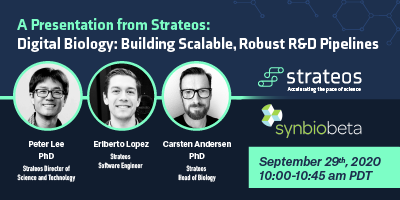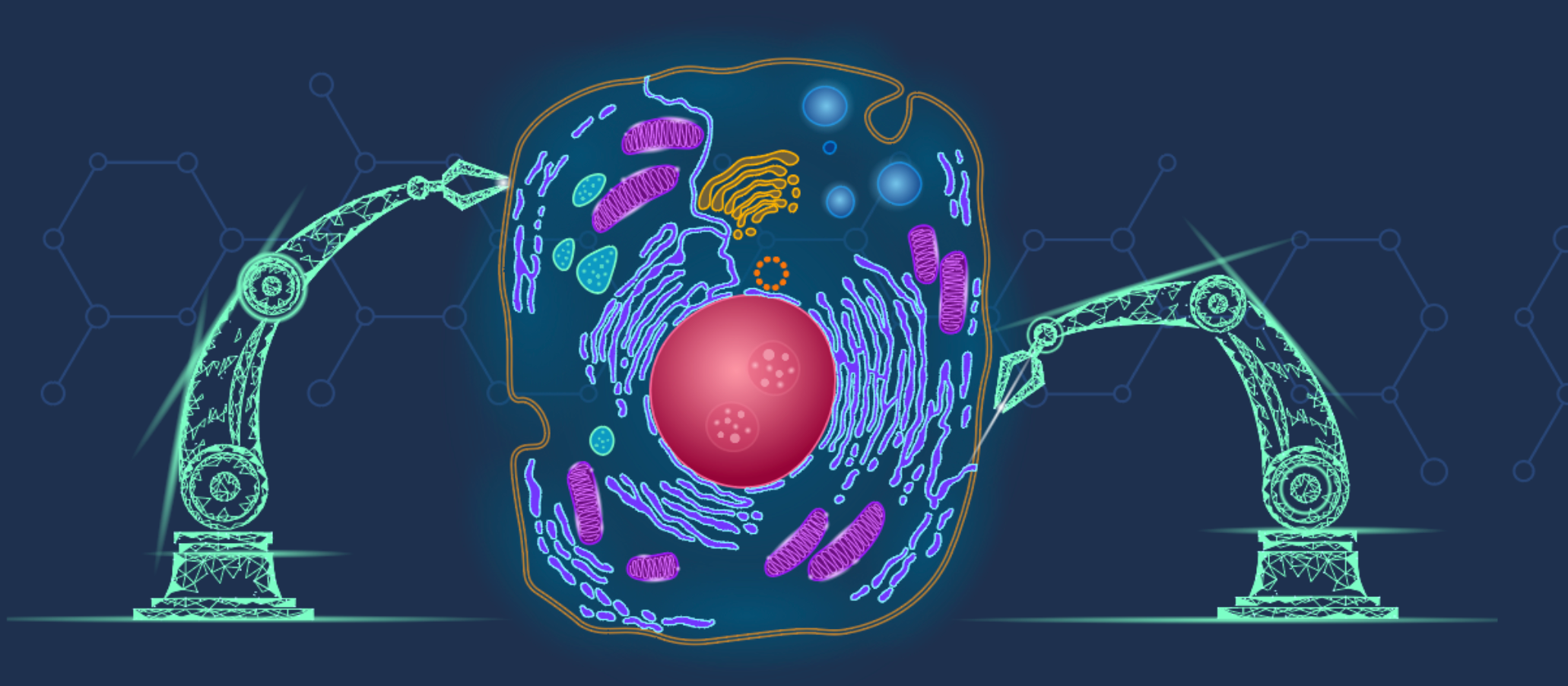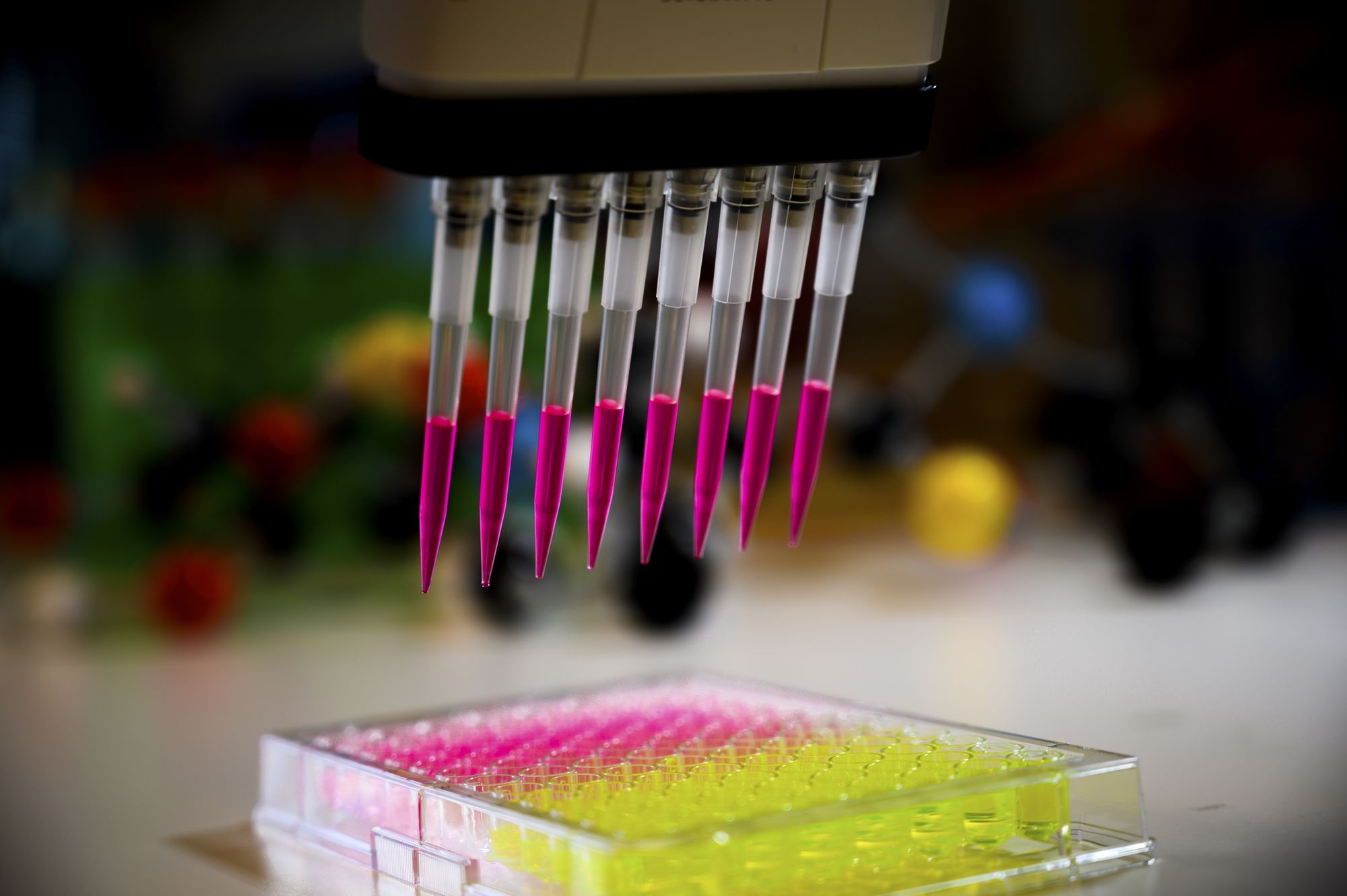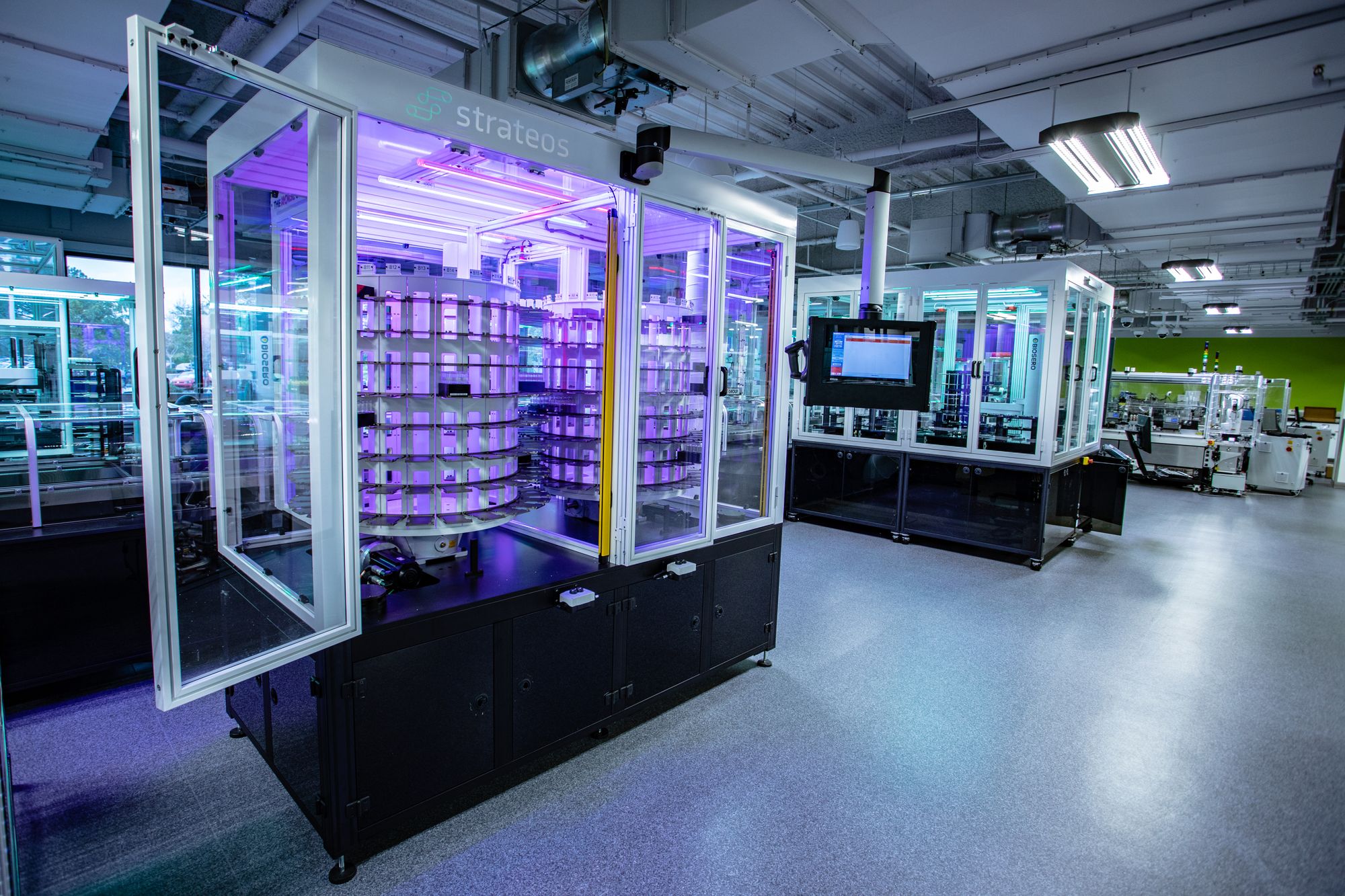The Global Synthetic Biology Conference 2020

In consideration of the fact that one gram of DNA can hold the equivalent of 700 terabytes of information, it’s evident why synthetic biology has the potential for enormous expansion of applications. With the capacity to improve many aspects of our world including healthcare and the environment, Strateos is enthusiastically engaged in furthering the pursuit of discovery in this fast growing discipline.
SYNBIO: THE ADVANTAGES AND CHALLENGES OF HEADWAY
Synthetic Biology has undoubtedly seen spectacular advancement in the last 20 years. What was once a discipline only capable of being descriptive, is now open to the ability to design predictable genetic components. Everything from more sustainable sources of meat to life-saving antibiotics, as well as accelerated development of vaccines have been made possible through the pivotal advances of synthetic biology. These leaps of progress have also piqued the interest of Tech giants such as Apple, Google, and Amazon, who see the potential in such developments as biological-to-digital converters, with the implications of sending and printing digitized DNA and RNA strands.
Allusions to the computing industry are more than just wordplay. CRISPR is making biology more programmable than ever, leading to intriguing applications with tremendous potential such as biosensors. Biosensors are genetic components that can sense changes in their environment. Currently, biosensors have been deployed in bacteria used to detect things such as explosive residue or oil-based pollutants. There is even hope that scientists may in future design these biosensors to detect disease.

As Synthetic Biology moves toward digitalization, the genetic application space becomes broader but reachable with new techniques and technologies.
However, as we move towards that horizon, success in this field has been hindered by the current state of traditional laboratories and processes.
Poor Reproducibility:
Owing to the naturally occurring variance in outcomes, successful reproducibility has been an elusive goal. A 2012 paper found that only 11% of 53 ‘Landmark’ studies on cancer therapies and treatments could be confirmed (Begley, C., Ellis, L. Raise standards for preclinical cancer research. Nature 483, 531–533, 2012). Part of this obstacle is found in the way that protocols can be “lost in translation” as small discrepancies in written protocols lead to deviating outcomes.
Lack of Reliability:
Another challenging aspect is the natural human error that is often found in liquid handling protocols. Measurement errors, human fatigue, and variance in recording measurements can all contribute to results that lack the reliability needed to replicate. Compounding these issues is the deviations in transcribed protocols that can occur which future colleagues must seek to decipher.
Low Throughput:
Another challenge to the pursuit of scientific advancement we see in the traditional lab is the slow and painstaking process of gathering high volumes of data. Manual hands-on time for an experienced scientist executing protocols can be up to 4 hours, significantly decreasing the amount of data that can be gathered in a short period of time. This can be especially challenging for smaller labs with limited space and resources. The extended duration of this process can delay the progress of much needed research.

THE VITAL ROLE OF CLOUD LABS IN PROGRESSING SYNTHETIC BIOLOGY
In the Life Sciences, Cloud Laboratories are poised to improve upon standard methods to deliver superior, voluminous data, as well as democratizing the process to allow smaller labs the scalability they require.
Greater Reproducibility:
With automation, liquid handling protocols are performed smoothly thereby minimizing volumetric errors. This condition helps to minimize the natural variance in biological agents, generating highly reproducible results.
Superior Reliability:
The coupling of integrated software and state of the art automation results in high quality datasets. As the partnership between Strateos and Amgen demonstrated, assays executed over a long period of time were successful in up to 98% of runs.
High Throughput:
Automation allows scientists unprecedented speed to test multiple hypotheses in parallel, by generating the expansive amount of data needed to draw conclusions and refine their parameter space. Thus increasing the pace of the iterative experimental cycle and making discoveries quicker. Furthermore, in a robotics cloud lab the same protocols that would take close to two hours to complete, are executed with automation in minutes.
Although biofoundries can resolve many of these issues, cloud laboratories are particularly positioned to provide better access to- and control of scaleable workflows. This important distinction allows smaller labs to achieve success on the same level as their larger counterparts.
Strateos strives to be a leader on this front by helping organizations build better design-build-test-learn cycles and making protocol building user friendly, as well as providing in-software tools to analyze data captures.

Strateos Presents at at Synbiobeta
Strateos is pleased to present at the Synthetic Biology Conference 2020. With our presentation we hope to demonstrate how scientists and innovators can have unprecedented access to throughput and data generation by building scalable, robust R&D pipelines, and with the convergence of on-demand lab resources as well as R&D management software.
Is your company fully utilizing these capabilities to turn the design-build-test-learn flywheel faster and faster? Are you able to respond to your data with scalable experimentation? Join Strateos, a pioneer in developing cloud laboratories that accelerate on-demand synthetic biology and drug discovery research, as they share their visions for biology in the age of the connected scientist. We'll discuss remote access cloud labs, the advent of on-demand biology, and explore data-driven synthetic biology use cases.
Bio Note
Eriberto Lopez is a Software Engineer on the Scientific Technologies Development team at Strateos. He impacts the scientific community by establishing reliable, scientific workflows to develop data-driven methods and establish data pipelines for biotechnology companies. He believes that automation will lower the barrier to entry for biotechnologies to enter the market. As a passionate biologist, Eriberto is excited about the growing catalog of technologies and products surfacing as the cost of synthetic DNA continues to decrease. He sees the emerging bioeconomy leading to a more sustainable future. Eriberto has published in Nature Biotechnology and holds a B.S. in Biology from Gonzaga University
